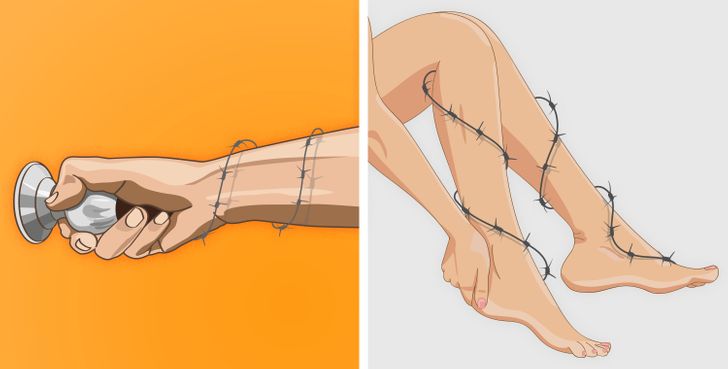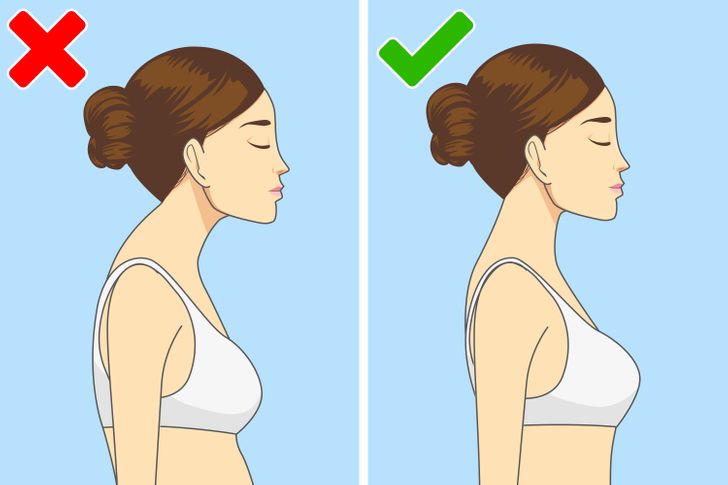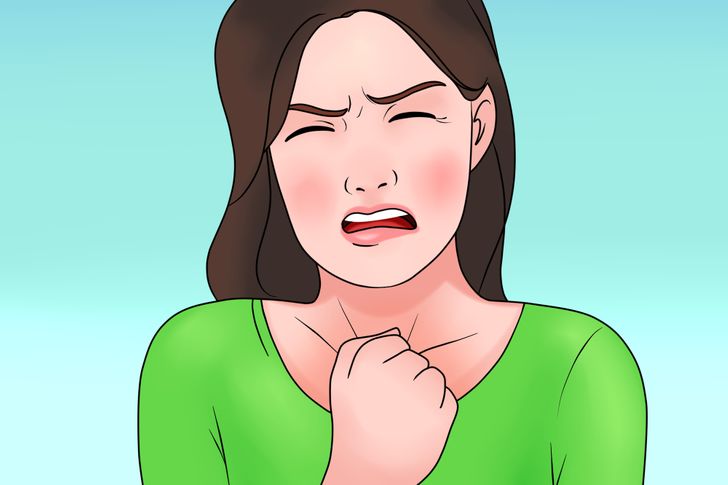Muscular dystrophy is generally caused by a genetic mutation and leads to progressive damage and loss of muscle cells in your body. It includes more than 150 types of degenerative diseases of the muscles that act in different ways, but almost all start with some mild symptoms that, if not noticed, progress slowly over time.
We collected 8 common warning signs of muscle degeneration that you should never ignore.
Warning Signs Of Muscle Degeneration
Pain And Stiffness In Muscles

The loss of muscle cells often causes a feeling of weakness in the muscles. So if you have trouble getting up from a chair, brushing your hair, lifting an object, or dropping things to the floor, you probably have muscular dystrophy.
You may also notice contractures, reduced flexibility, and frequent muscle pain, indicating that something is wrong with your muscles.
Along with this, symptoms such as prolonged spasms and stiffness and tightness in the muscles of the arms and legs can be signs of myotonia, a serious condition that requires medical treatment.
Enlarged Calves

Increased calf muscles can be one of the signs of Duchenne muscular dystrophy. This disease usually occurs at a young age in children and gets worse very quickly.
If you have Duchenne disorder, the calf muscles are often affected first because they are used a lot when trying to stabilize the body. In this case, the original muscles end up being replaced by fatty tissue and scarred.
Curved Spine

If your muscles aren’t strong enough to keep your spine straight, you may suffer from poor posture that can lead to scoliosis over time. Due to this condition, your spine bends to the left or right side so that your internal organs change position.
Scoliosis usually occurs in adolescents and is diagnosed more often in women than in men. The disease can have many negative effects on your health, including headaches and constant pain in your legs.
Breathing Problems

In severe cases of scoliosis, progressive muscle weakness can affect the chest muscles associated with the breathing process. While you may not feel short of breath per se, you may have some problems that indicate poor respiratory function, such as headaches, trouble concentrating, and nightmares.
Weak pectoral muscles make coughing difficult, increasing the risk of a serious respiratory infection. So if not properly treated, a simple cold can quickly progress to pneumonia.
Speech, Chewing And Swallowing Difficulties

Eating problems, including loss of the ability to chew or swallow food, coughing, choking, or a muffled voice after eating, can be early signs of Kennedy’s disease. This disease can manifest itself at any age, but most often it develops in middle age.
Along with eating difficulties, you may experience some other symptoms such as changes in speech, nasal voice, and even complete atrophy of the muscles of the face, jaw, and tongue. All require immediate medical treatment.
Heart Problems

In various forms of muscular dystrophy, progressive changes in heart function can occur. These changes are called cardiomyopathy, and you may not have any symptoms in the early stages, although some people experience shortness of breath, tiredness, or swelling in the legs.
However, due to this disorder, the heart muscle cannot function as perfectly as it should. This is why you can develop symptoms like irregular heartbeat, fainting, and dizziness over time.
How To Treat Muscular Dystrophy?
While there is no real cure for muscle degeneration, you can still do a few simple things to keep your muscles strong and healthy:
Get regular exercise. As your muscles go through a gradual weakening process, one of the best ways to slow down is to exercise daily. Regular low-intensity physical activity and stretching will help you stimulate your body and build muscle naturally.
Eat more foods rich in vitamins E and D. If you have muscle weakness, eat more salmon, sardines, shrimp, cheese, eggs, almonds, avocados, broccoli, and olive oil.
Use turmeric powder when cooking. This ancient Indian spice with a powerful compound called curcumin can be helpful in preventing and treating muscle wasting.
Drink green tea instead of other beverages. According to some studies, drinking around 7 cups of green tea a day can help slow the deterioration of muscle tissue by fighting oxidative stress in the muscles.
Add baking soda to the bath. Due to its alkaline nature, this substance can protect the muscles and eliminate pain and inflammation in them.
If you have noticed any of these symptoms, the first thing to do is consult your doctor.
Do you know of any way to treat muscular dystrophy? Share your thoughts on the matter with us in the comment section below. Staying healthy!


